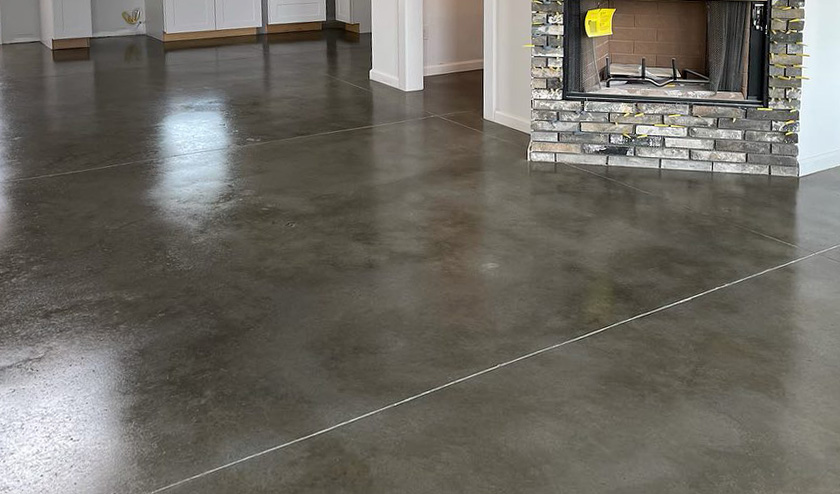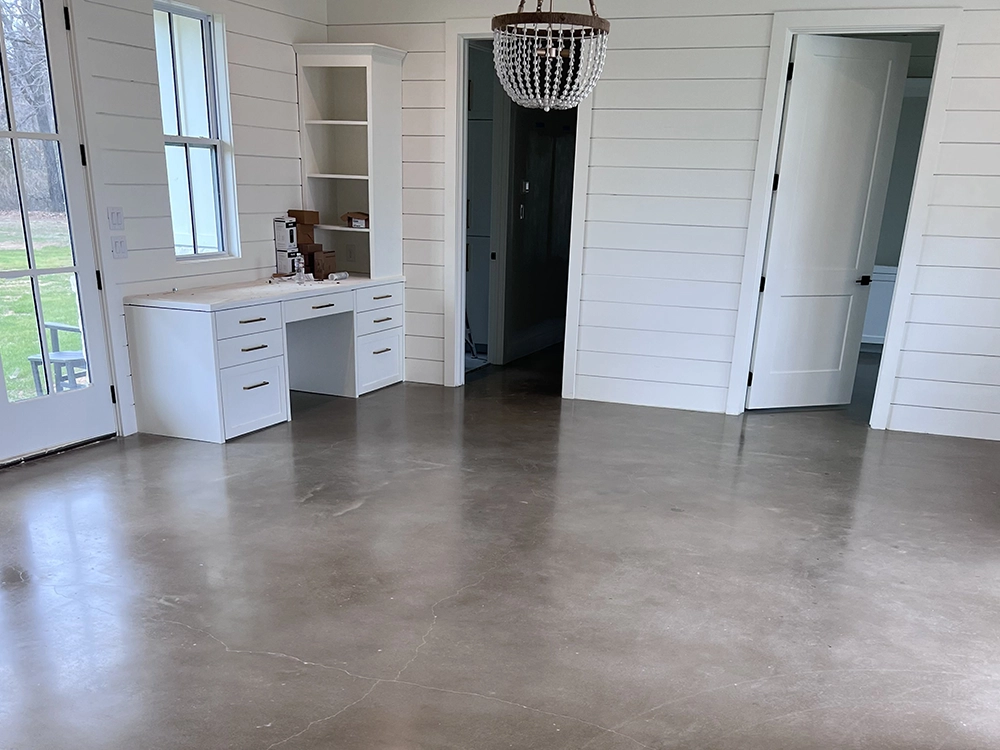Why Neighborhood Stained Floor Covering Is the Perfect Option for Sustainable Home Improvement
In the realm of lasting home renovation, local discolored floor covering has actually become a popular option among ecologically mindful homeowners. The distinct blend of visual charm, resilience, and environmental benefits it provides can not be neglected. By utilizing locally sourced wood, it cultivates a positive ecological impact, and the discoloration procedure enhances sturdiness while lessening harmful chemical use. As an affordable financial investment with minimized maintenance demands, it increases a thought-provoking concern: could this be the optimal remedy for sustainable housing?
Comprehending the Concept of Local Tainted Flooring
While the notion might appear novel to some, regional stained floor covering is an ingenious method to home renovation that combines aesthetics, longevity, and sustainability. The staining procedure not just improves the all-natural charm of the timber grain yet additionally adds a layer of security, increasing the long life of the floor covering. Using neighborhood wood varieties typically supports regional economies and promotes liable woodland management techniques.
The Looks of Regional Discolored Flooring
Why is neighborhood tarnished flooring obtaining popularity for its visual appeals? The response hinges on the special beauty and character it offers any room. Neighborhood stained floor covering offers a varied variety of colors and patterns, showing the natural appeal and variants of the regional timber types used. This produces a distinct, tailored visual that can not be replicated by mass-produced alternatives. Furthermore, the discoloration procedure enhances the wood's inherent grain and texture, adding depth and splendor to the floor's look. This rustic sophistication flawlessly mixes with different interior decoration styles, from typical to modern, making it a flexible option for house owners. Eventually, the attraction of neighborhood discolored floor covering depends on its ability to transform homes right into distinctive, visually appealing rooms while advertising sustainability.
Ecological Impacts of Local Discolored Floor Covering
The environmental implications of local stained floor covering include 2 substantial factors: minimizing carbon footprint and waste minimization advantages. Using locally sourced materials for staining not only diminishes transport exhausts, yet additionally advertises lasting forestry practices. The waste reduction element comes into play as these floor covering kinds usually have a longer life expectancy, decreasing the frequent requirement for substitutes and the waste linked with it.
Decreasing Carbon Footprint
As home owners turn to even more lasting choices, neighborhood stained floor covering emerges as a viable remedy to decrease carbon impact. This sort of floor covering mainly makes use of in your area sourced materials, which significantly minimizes the requirement for transport. Consequently, this reduces discharges connected with freight transportation, adding to lower levels of greenhouse gases in the ambience. The procedure of discoloring the flooring, rather than using synthetic finishings, entails fewer chemicals and much less energy-intensive treatments. This leads to a reduction in carbon emissions throughout the manufacturing process. Going with local stained flooring shows an effective measure in promoting environmental sustainability, highlighting a tangible means homeowners can add to combating climate adjustment from the comfort of their very own homes.
Waste Minimization Benefits
Although usually neglected, waste minimization is another substantial benefit of neighborhood stained flooring. In addition, the discoloration procedure uses less sources and generates much less waste contrasted to producing new floor covering products. The selection of neighborhood discolored flooring not only beautifies homes yet likewise underpins a commitment to lasting living and waste decrease.
The Toughness and Maintenance of Regional Tarnished Floor Covering

The Cost-Effectiveness of Neighborhood Tainted Floor Covering
While neighborhood discolored flooring could at first appear extra costly than other alternatives such as rug or laminate, its durability and longevity promptly turn it right into a cost-efficient selection. The in advance expense is frequently countered by the decrease in maintenance expenditures with time. Unlike carpetings that require regular deep cleaning or laminate that may need replacement after a few years, stained floorings are constructed to last, lowering the need for costly repair work or substitute. Local sourcing of materials lowers transportation expenses, contributing to both financial cost savings and a reduced carbon impact. For homeowners seeking a lasting, cost-effective option for their floor covering requires, regional discolored flooring emerges as a premium, lasting financial investment that repays over time.

Real Life Instances of Lasting Homes With Local Stained Floor Covering
In the world of sustainable home renovation, neighborhood discolored flooring has actually emerged as a prominent option. To additionally illustrate its advantages, numerous reality instances of eco-friendly homes that have successfully incorporated this floor covering strategy will be highlighted. These study give substantial evidence of the advantages and effect of using regional tarnished flooring in lasting homes.

Display: Eco-Friendly Floor Covering Houses
Checking the world, one can discover various homes that symbolize the idea of green living via the usage of regional stained floor covering. Throughout oceans in copyright, a modern abode showcases its abundant, maple-stained floor covering, a testament more info here to the abundant neighborhood timber supply (Commercial Stained Concrete Floors). These homes not just showcase the visual flexibility of local tarnished flooring yet likewise its contribution to a much more sustainable way of living.
Regional Stained Floor Covering Benefits
The obvious appeal of neighborhood tarnished floor covering prolongs past its aesthetic allure, as it likewise provides considerable benefits to both property owners and the atmosphere. An additional instance is a green-certified home in Austin, Texas, where locally sourced walnut was tarnished and used for flooring, adding to the home's LEED accreditation.
Conclusion
In verdict, regional tarnished flooring is a practical and sustainable choice for home improvement. This selection supports local economic situations, decreases environmental effect, and enhances home appearances. Its durability makes sure longevity, decreasing maintenance expenses in the lengthy run. With its distinct mix of ecological, economical and aesthetic benefits, regional tarnished floor covering is a clear choice for property owners looking for a lasting, cost-effective and visually attractive home improvement solution.
In the world of sustainable home renovation, regional stained floor covering has arised as a popular selection among eco conscious house owners. Neighborhood tarnished floor covering provides a diverse range of patterns useful content and shades, mirroring the natural charm and variations of the regional wood species made use of. The choice of regional tarnished flooring not only enhances homes but likewise underpins a dedication to lasting living and waste decrease.
For homeowners seeking a lasting, affordable solution for their floor covering requires, neighborhood tarnished floor covering emerges as an exceptional, long-lasting financial investment that pays off over time. Stained Concrete.
With its special blend of ecological, aesthetic and economical benefits, neighborhood tarnished floor covering is a clear choice for house owners seeking a sustainable, aesthetically attractive and Full Article cost-effective home improvement solution.